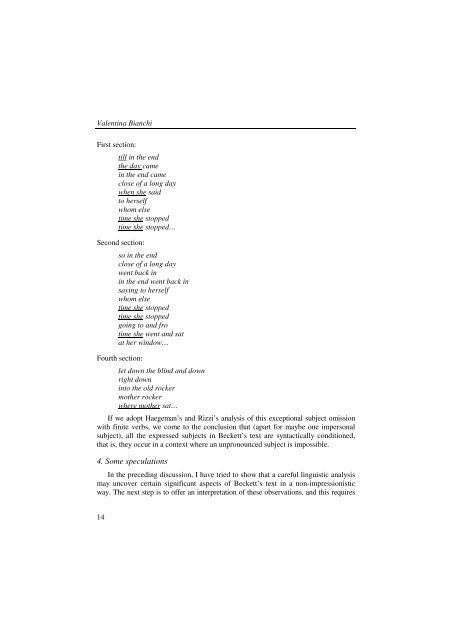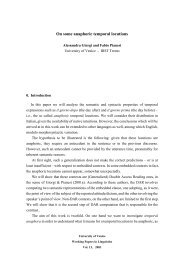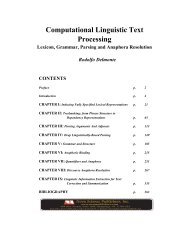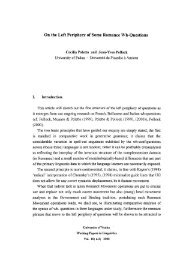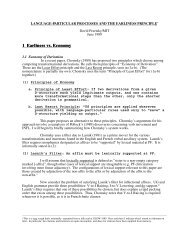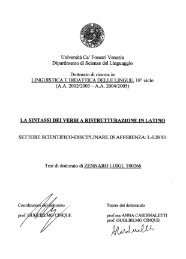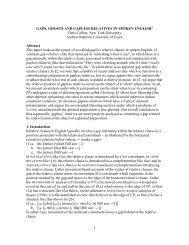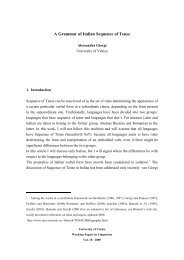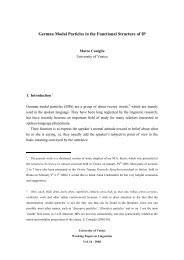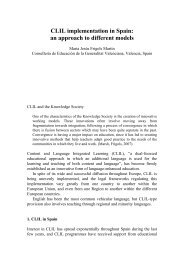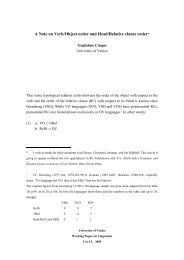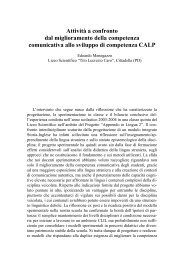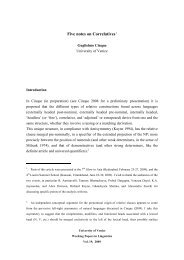Untitled - Lear
Untitled - Lear
Untitled - Lear
Create successful ePaper yourself
Turn your PDF publications into a flip-book with our unique Google optimized e-Paper software.
Valentina Bianchi<br />
First section:<br />
14<br />
till in the end<br />
the day came<br />
in the end came<br />
close of a long day<br />
when she said<br />
to herself<br />
whom else<br />
time she stopped<br />
time she stopped…<br />
Second section:<br />
so in the end<br />
close of a long day<br />
went back in<br />
in the end went back in<br />
saying to herself<br />
whom else<br />
time she stopped<br />
time she stopped<br />
going to and fro<br />
time she went and sat<br />
at her window…<br />
Fourth section:<br />
let down the blind and down<br />
right down<br />
into the old rocker<br />
mother rocker<br />
where mother sat…<br />
If we adopt Haegeman’s and Rizzi’s analysis of this exceptional subject omission<br />
with finite verbs, we come to the conclusion that (apart for maybe one impersonal<br />
subject), all the expressed subjects in Beckett’s text are syntactically conditioned,<br />
that is, they occur in a context where an unpronounced subject is impossible.<br />
4. Some speculations<br />
In the preceding discussion, I have tried to show that a careful linguistic analysis<br />
may uncover certain significant aspects of Beckett’s text in a non-impressionistic<br />
way. The next step is to offer an interpretation of these observations, and this requires


